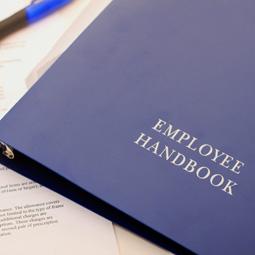How to Successfully Leave a Law Job
Published: Oct 02, 2012

Hindi Greenberg, J.D., is the president of Lawyers in Transition. She consults with individual lawyers nationwide on career satisfaction and options in and out of law, and with law firms on outplacing their attorneys.
How do you change your current legal employment for a new law job or one outside the practice of law, without burning bridges or committing ethical violations? The following are some things to consider in order to transition more smoothly, whether you work for or are a partner in a law firm or work in most other legal employment situations.
For more exact requirements, check with your state’s bar association or Rules of Professional Conduct and/or the ABA guidelines to ascertain your responsibilities—this blog does not constitute legal advice nor address your specific situation.
- Give your current employer as much notice as possible so you can tie up loose ends on your cases. Although there is no prescribed number of weeks required before leaving your job, more notice is generally better because it is often necessary to finish work on cases and transfer them to another attorney. However, there are two situations when it may be in your best interest to give less notice. One would be if you think your employer will immediately terminate you and you aren’t ready for that to happen. The second is when your new job requires you to start soon. But even if you have to begin working elsewhere, you might make an effort to finish up your current projects—perhaps by working for several evenings or weekends, even after you start your new job.
- In order to avoid alienating your soon-to-be-former employer and clients, ask them what you can do to make the transition go as smoothly as possible. Of course, if you were laid off or fired by your employer, this step isn’t as necessary, although it will create better relations if you help rather than retaliate.
- Leaving your clients without proper representation will generally lead to disciplinary action. To avoid this, find someone within your firm or an outside colleague to whom you can refer your client(s). Inform your clients of the referral, and then confirm that the new lawyer follows through. Be sure to document the transfer of your files to another attorney, as well as your subsequent communication to your client of that transfer.
- Make sure the legal files you transfer to another attorney are complete and understandable. You do not want a file you left incomplete or garbled to come back to haunt you. Spend time assuring that each file that you transfer is up to date, has copies of all case documents and communications and has a memorandum from you summarizing the case, its major issues and other items you deem relevant. Keep a copy of the most important file documents, plus your transfer cover sheet and instructions.
- Never badmouth your former employer, no matter how well-deserved—burned bridges rarely can be repaired. Prospective employers are wary of negative comments made in interviews; those comments can make the employer suspect that you, rather than your former employer, are the problem. Instead, present positive reasons for why you have decided to pursue a new job, to give yourself an aura of moving forward to a good opportunity rather than running away from a bad situation.
- Before beginning work for your new employer, be on the lookout for conflicts of interest caused by your client relationships or casework for your former employer. It is important to ensure that your work on a former case will not cause you to be a liability, rather than an asset, to your new employer.
- Check whether your former employer’s malpractice insurance will cover you for lawsuits, filed by former clients, even several years after you’ve left the firm. If it will not and you are leaving law practice entirely, buy a type of “tail” policy to cover you over the number of years that any limitations statue would allow suit.
Although the foregoing does not cover all issues and considerations when leaving a job, if you follow the above points, you should be able to remain on good terms with your former employer. And that is a good thing, since you never know when you may need to work with your former employer again in some capacity, ask for a reference or have some contact in an unrelated business situation. Even in the biggest cities, legal communities are like small towns—everyone knows who is doing what and to whom. So make sure what you do to your former employer is perceived by other lawyers and potential employers as both ethical and positive.
© 2012 by Hindi Greenberg, J.D./Lawyers in Transition. No reproduction in any format, other than on www.vault.com, without express written permission. Hindi Greenberg may be reached at (530) 274-7955 or www.lawyersintransition.com.
